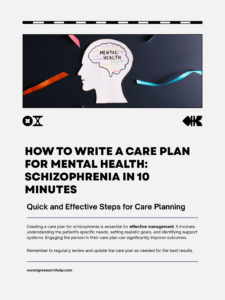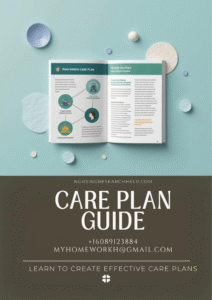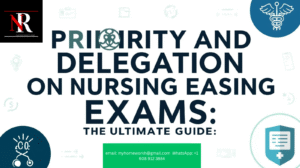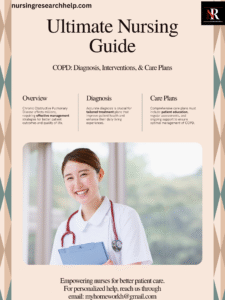What is the Best Resource to Study for NCLEX? Your Ultimate Guide
What is the Best Resource to Study for NCLEX? Your Ultimate Guide
If you’re a nursing student nearing graduation, one question dominates your thoughts: “What is the best resource to study for NCLEX? Your ultimate guide” It’s the crucial query on every future nurse’s mind, and for good reason. The NCLEX (National Council Licensure Examination) is the final, formidable gatekeeper standing between you and your nursing license.
With the vast array of review courses, question banks, books, and apps available, choosing the right tool can feel overwhelming. This comprehensive guide won’t just list resources; it will provide a framework for building a personalized, strategic study plan. We’ll dissect the top contenders, analyze their strengths, and ultimately help you answer the timeless question: what is the best resource to study for NCLEX for you?
Understanding the NCLEX Itself: The Blueprint for Your Study
Before we can determine the best resource to study for NCLEX, we must understand the exam. The NCLEX uses Computerized Adaptive Testing (CAT), meaning the difficulty of each question adapts based on your previous answers. It tests clinical judgment through the NCSBN Clinical Judgment Measurement Model.
Therefore, the best resource to study for NCLEX will be one that doesn’t just test rote memorization but pushes you to analyze, prioritize, and make safe clinical decisions—just like a real nurse.
Your study resource must effectively cover four major client needs categories:
- Safe and Effective Care Environment
- Health Promotion and Maintenance
- Psychosocial Integrity
- Physiological Integrity
A resource that masters this blueprint is a strong contender for the title of best resource to study for NCLEX.
Top Contenders: Breaking Down the Best NCLEX Review Resources
Here, we evaluate the most popular and effective resources, examining why each is frequently cited as the best resource to study for NCLEX.
- UWorld: The Gold Standard Question Bank
When polls ask nurses “what is the best resource to study for NCLEX,” UWorld is the most common answer. It’s renowned for its high-quality, challenging question bank.
- Why it’s a top pick: Its rationales are unparalleled in depth and clarity. You don’t just learn the right answer; you understand the why behind every option, right and wrong. The interface mirrors the actual NCLEX, reducing test-day anxiety. For many, the combination of rigorous questions and brilliant explanations makes it the best resource to study for NCLEX for content mastery.
- Best for: Students who learn by doing and need detailed, conceptual understanding.
- Archer Review: High-Quality CAT Simulators & Affordability
Archer Review has surged in popularity by offering robust content at a competitive price, making it a strong answer to “what is the best resource to study for NCLEX on a budget?”
- Why it’s a top pick: Its “Readiness Assessments” and CAT exams are praised for their predictive accuracy. Many users report that the question style and difficulty feel strikingly similar to the actual NCLEX. Their video content is concise and targeted. When evaluating value for money, many conclude Archer is the best resource to study for NCLEX.
- Best for: Students seeking realistic CAT practice and comprehensive bundles without a premium price tag.
- Kaplan NCLEX Prep: The Structured, Strategic Approach
Kaplan is an institution in test prep, and their NCLEX program is built on a proven three-step method: Knowledge, Confidence, and Practice.
- Why it’s a top pick: Kaplan excels in teaching test-taking strategy. Their “Decision Tree” is a famous tool for dissecting questions logically. If you need structure and a methodological approach to the exam, you might find Kaplan is the best resource to study for NCLEX for you.
- Best for: Students who want a highly structured review course with a strong emphasis on strategy.
- Hurst Review: Core Content Mastery
Hurst focuses on building a strong foundation. Their mantra is to teach the “core content” you absolutely must know.
- Why it’s a top pick: If you feel your nursing school knowledge is shaky or full of gaps, Hurst is phenomenal at building a solid base. Their live or streamed reviews are engaging and simplify complex topics. For solidifying fundamentals, many proclaim Hurst as the best resource to study for NCLEX.
- Best for: Students who need a thorough content review and prefer a lecture-style learning format.
- Saunders/Elsevier: The Comprehensive Textbook Companion
Saunders Comprehensive Review for the NCLEX-PN/RN is the classic, trusted textbook. It’s often used alongside online question banks.
- Why it’s a top pick: It’s incredibly thorough. Every topic is covered in detail, making it an excellent reference book. The included online platform (HESI) offers practice questions and exams. For learners who thrive with a physical book, Saunders is a key part of identifying the best resource to study for NCLEX.
- Best for: Visual learners and those who appreciate having a detailed, physical textbook for reference.
- SimpleNursing & Picmonic: Visual and Mnemonic Aids
These resources specialize in memory retention through visuals, animations, and mnemonics.
- Why they’re top picks: They tackle the hardest-to-remember topics (pharmacology, pathophysiology) with clever memory tricks. If you’re saying, “I can’t memorize all these drugs!” then the best resource to study for NCLEX for you might be a supplement like these.
- Best for: Supplementing a primary question bank or course, especially for visual learners struggling with memorization.

How NursingResearchHelp Complements Your Search for the Best Resource to Study for NCLEX
While dedicated NCLEX platforms are irreplaceable, your journey to the licensure exam runs parallel to the immense pressure of nursing school coursework. This is where our academic support service NursingResearchHelp become a strategic component of your overall success.
By providing expert assistance with the demanding essays, research papers, care plans, and dissertations that fill your semester, they free up the critical time and mental energy you need to focus on your ultimate goal: passing the NCLEX.
NursingResearchHelp operates as your academic partner, ensuring you excel in your program while building the knowledge base for the NCLEX. Here’s how they help you create the space and foundation to effectively use the best resource to study for NCLEX:
-
Mastering Coursework to Build NCLEX Foundation: Every nursing assignment is potential NCLEX content. NursingResearchHelp’s experts—often practicing nurses or advanced-degree holders—assist with complex papers on pharmacology, pathophysiology, and evidence-based practice.
-
By providing well-researched, correctly cited models and tutorials, they help you deeply understand these topics, which directly translates to answering more NCLEX questions correctly. You’re not just submitting an assignment; you’re reinforcing the core content that forms the best resource to study for NCLEX foundation.
-
Conquering Time-Intensive Projects: A 50-page capstone project or DNP dissertation can consume hundreds of hours. By offering structured support in research, writing, and formatting for these major projects, NursingResearchHelp.com reclaims those hours for you. This means you can dedicate consistent, daily time to your UWorld or Archer question bank without sacrificing your GPA. When asking “what is the best resource to study for NCLEX?”, the answer must include having enough time to use it effectively.
-
Reducing Academic Burnout: Nursing school burnout is real and a major barrier to effective NCLEX prep. The relentless cycle of assignments and exams drains cognitive reserves. By providing reliable, high-quality academic support, NursingResearchHelp alleviates this pressure, allowing you to approach your dedicated NCLEX study sessions with focus and clarity, rather than exhaustion.
-
A clear, less-stressed mind is better equipped to absorb the complex rationales from the best resource to study for NCLEX.
-
Learning Through Exemplar Models: For many students, seeing a perfectly structured nursing care plan, SOAP note, or reflective analysis is the key to understanding. NursingResearchHelp provides these exemplars, serving as educational tools. You learn the correct format, critical thinking flow, and professional writing style.
-
This elevates your own clinical judgment skills—the very skill the Next Gen NCLEX tests. Thus, they supplement your primary tools and contribute to finding your personal best resource to study for NCLEX.
So, What is the Best Resource to Study for NCLEX? A Personalized Methodology
The truth is, the best resource to study for NCLEX is not a single product. It’s the resource or combination that best addresses your individual learning style, knowledge gaps, and budget. Use this methodology to decide:
- Assess Your Weaknesses: Did you struggle with Med-Surg? Is pharmacology a blur? Take a diagnostic assessment (many resources offer one) to identify gaps.
- Identify Your Learning Style: Do you learn by reading (Saunders), by doing questions (UWorld/Archer), by listening to lectures (Hurst), or through visuals (SimpleNursing)?
- Consider Your Budget: Resources range from ~$200 for question banks to ~$500+ for comprehensive live courses. Determine what you can invest.
- The Winning Combination: For most successful test-takers, the best resource to study for NCLEX is a HYBRID MODEL:
- A Primary Question Bank (UWorld or Archer): For daily practice and rationales. This is non-negotiable.
- A Content Review Source (Hurst, Kaplan, or Saunders): To fill foundational gaps. Choose based on your preferred format.
- A Supplemental Tool (SimpleNursing/Picmonic): For stubborn memorization topics.
- The NCSBN’s own Review (often overlooked): For understanding the official perspective on clinical judgment.
Building Your Study Plan Around Your Chosen Resource
Once you select the best resource to study for NCLEX for your needs, you need a plan.
Months 1-2: Content Review & Foundation
- Use your chosen content resource (e.g., Hurst videos, Saunders chapters) systematically.
- Start doing 30-50 questions daily from your question bank, UNTIMED, focusing solely on understanding rationales.
Months 3-4: Targeted Practice & Identification
- Increase to 75-100 questions daily, TIMED.
- Use performance data to identify weak areas. Spend extra time reviewing content in those topics.
- Begin taking 75-100 question block tests weekly.
The Final Month: Assessment & Endurance
- Take full-length, 145-question CAT simulator exams (provided by Archer, Kaplan, or UWorld) to build stamina.
- Read rationales for every question, even the ones you got right.
- Trust your preparation. Anxiety is normal, but if you’ve used the best resource to study for NCLEX strategically, you are ready.
Beyond Resources: The Essential, Non-Negotiable Habits
No matter which resource you deem the best resource to study for NCLEX, these habits are critical:
- Active Learning: Don’t just passively read or watch. Take notes, make flashcards, teach the material to someone else.
- Focus on Rationales: The learning is in the explanation. This is the single most important study activity.
- Simulate Test Conditions: Practice questions timed and in a quiet space to mimic the testing center.
- Care for Your Wellbeing: Sleep, nutrition, exercise, and breaks are not optional. Burnout will undermine even the best resource to study for NCLEX.
Conclusion: Your Personalized Path to NCLEX Success
So, what is the best resource to study for NCLEX? The answer is personalized, strategic, and often composite. For a majority, it involves a high-quality question bank like UWorld or Archer for application, paired with a structured content review like Hurst or Kaplan for foundation, and visual supplements for tough topics. Your unique recipe for success depends on honestly assessing your needs.
The journey to passing the NCLEX is a marathon. By carefully selecting the tools that fit you best and committing to a consistent, active study plan, you transform from a student asking “what is the best resource to study for NCLEX?” into a confident, prepared candidate ready to earn the title of Registered Nurse. Start your evaluation today, choose your resources, and begin the final, decisive climb toward your nursing career.
FAQ: What is the Best Resource to Study for NCLEX?
Q1: Is there one single resource that is definitively the best resource to study for NCLEX?
A: No single resource works perfectly for everyone. However, dedicated question banks with detailed rationales (like UWorld and Archer) are most consistently praised by successful test-takers as the core of an effective plan.
Q2: I’m on a tight budget. What is the best resource to study for NCLEX for me?
A: Archer Review provides excellent value with comprehensive question banks and CAT simulators at a lower price point than some competitors. The free resources from the NCSBN are also essential. Consider splitting costs with a trusted study partner.
Q3: How do I know if a resource is the best resource to study for NCLEX for my learning style?
A: Take advantage of free trials! Most major platforms offer 1-7 day trials. Try answering questions, watching a video lecture, or using a visual mnemonic tool. Your gut feeling about what “clicks” is a powerful indicator.
Q4: Should I use the resource my nursing school provided, or find my own best resource to study for NCLEX?
A: Use your school’s resource as a baseline, especially if it’s integrated into your curriculum. However, you are ultimately responsible for your license. Supplement aggressively with external tools that address your personal gaps. The best resource to study for NCLEX is the one that ensures your understanding.
Q5: How long before my exam date should I start using my chosen best resource to study for NCLEX?
A: Begin a structured review 3-4 months before your planned test date. This allows time for comprehensive content review, thousands of practice questions, and full-length assessments without last-minute cramming.









(271).jpg)









